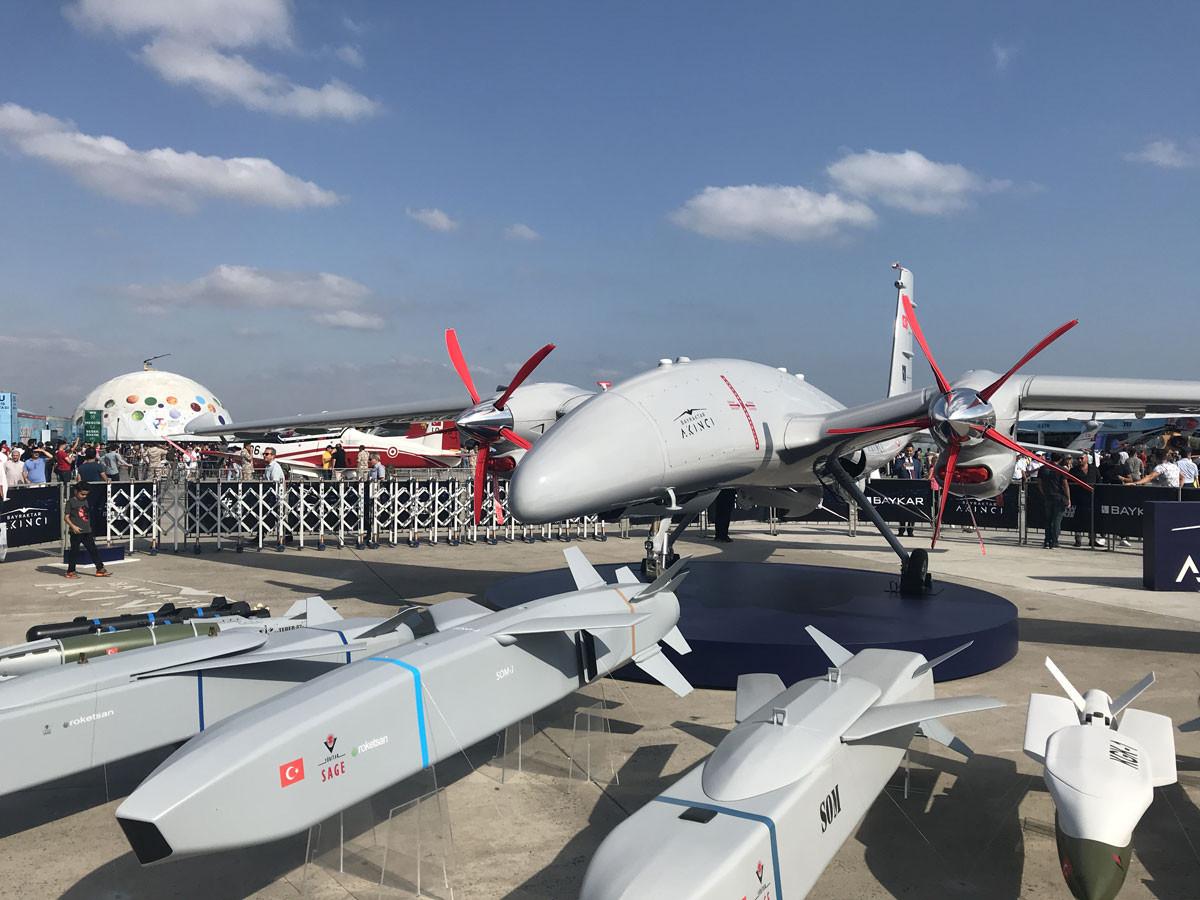
Azerbaijan’s Possible Purchase of New Turkish Attack Drones
In May of this year, Turkey’s media reported that two Bayraktar Akıncı attack UAVs took off from the Tekirdağ airport not far from Istanbul, crossed over Georgia and landed in Baku where they were displayed at a technology festival.
The two drones, manufactured by Turkey’s Baykar company, were able to cover the 2,000 kilometers in five hours. (Akıncı translates to raider/attacker). Baykar technical director Selcuk Bayraktar, who is the son-in-law of the President of Turkey, announced in Baku that he hopes to see the UAVs in the skies of Azerbaijan.
Baykar also announced, without mentioning names, that it has signed export contracts for the Akıncı UAVs with three countries, and deliveries are planned to start in 2023. In the spring of 2023, information appeared on the acquisition of this new Turkish drone by Pakistan and Libya. Recently, it became known that Saudi Arabia has become the new purchased of Turkish drones.
The Stockholm International Peace Research Institute (SIPRI), which deals with the study of the international military trade, noted in the statistics regarding Azerbaijan that the delivery of Akıncı UAVs to Azerbaijan is planned to start in 2023. It is not known what the number is.
Akıncı UAVs according to official Baykar data, can carry up to 1500 kg of payload (armament). The drones can fly at a height of twelve kilometers, although a new record of 13.7 km was set in the summer of 2022. The drones can fly for 24 hours straight, but in the summer of 2021, this UAV was in the air for about 26 hours and traveled 7,507 km.
These new UAVs, named after the Bayraktar family who founded the company in 1986, can be armed with high-precision guided missiles and aerial bombs, which are produced in Turkey. These include guided bombs of the MAM-L and MAM-C type that were launched from the Bayraktar TB2 UAV by Turkish-Azerbaijani forces in the 2020 Karabakh war.
Speaking about Azerbaijan's acquisition of the Akıncı attack UAVs, military expert Leonid Nersisyan in his conversation with Hetq singled out several factors: the high technical parameters of this drone, the relatively small territory of Azerbaijan, and the fact that the Akıncı is larger in volume and weight than the Bayraktar TB2. Thus, he believes the Akıncı is more vulnerable to Armenia’s air defense system.
Nersisyan, noting that the Akıncı UAV is intended for long distance flights at high altitudes, believes that Azerbaijan may be interested in deploying them not only against Armenia or Artsakh, but also against Iran.
"I just don't see the significance of using Akıncı UAVs in a small country,” says Nersisyan.
 Videos
Videos Photos
Photos
Write a comment